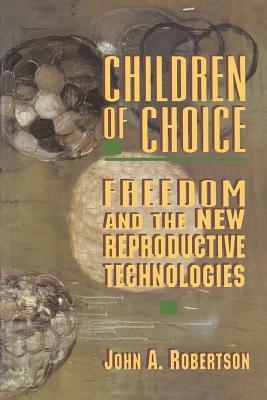Cloning, genetic screening, embryo freezing, in vitro fertilization, Norplant, RU486--these are the technologies revolutionizing our reproductive landscape. Through the lens of procreative liberty--meaning both the freedom to decide whether or not to have children as well as the freedom to control one's reproductive capacity--John Robertson, a leading legal bioethicist, analyzes the ethical, legal, and social controversies surrounding each major technology and opens up a multitude of fascinating questions: Do frozen embryos have the right to be born? Should parents be allowed to select offspring traits? May a government force welfare recipients to take contraceptives? Robertson's arguments examine the broad range of consequences of each reproductive technology and offers a timely, multifaceted analysis of the competing interests at stake for patients, couples, doctors, policymakers, lawyers, and ethicists.

Children of Choice: Freedom and the New Reproductive Technologies
Cloning, genetic screening, embryo freezing, in vitro fertilization, Norplant, RU486--these are the technologies revolutionizing our reproductive landscape. Through the lens of procreative liberty--meaning both the freedom to decide whether or not to have children as well as the freedom to control one's reproductive capacity--John Robertson, a leading legal bioethicist, analyzes the ethical, legal, and social controversies surrounding each major technology and opens up a multitude of fascinating questions: Do frozen embryos have the right to be born? Should parents be allowed to select offspring traits? May a government force welfare recipients to take contraceptives? Robertson's arguments examine the broad range of consequences of each reproductive technology and offers a timely, multifaceted analysis of the competing interests at stake for patients, couples, doctors, policymakers, lawyers, and ethicists.